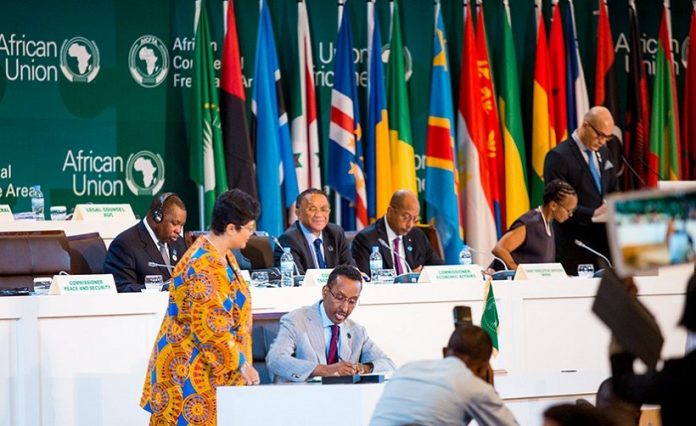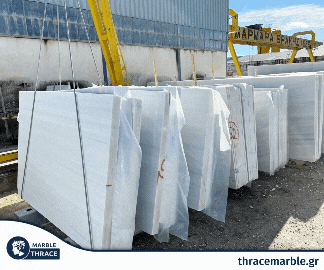African governments are finally following through on their promises to build a free trade area after decades of talk.
One year on from the historic signature of the framework deal for the African Continental Free Trade Agreement (AfCFTA) in Kigali, the continent’s nascent free trade deal is on the agenda for business and political leaders at the Africa CEO Forum on 25-26 March, also taking place in the Rwanda capital.
- On 21 March 2018, 49 governments signed the framework deal for the AfCFTA at the African Union summit. The 80-page-long document would create the world’s largest free trade area, with 1.2 billion inhabitants and a GDP of about $3trn.
- Article 23 requires that 22 countries ratify the AfCFTA deal in order for it to take effect. To date 21 countries have done so.
- Albert Muchanga, the AU commissioner for trade and industry says that the free trade area could come into effect by July.
Niger’s President Mahamadou Issoufou, who is leading the AU’s drive to bring the project to fruition after almost three decades of debate, says: “These 84,000km of borders between our 55 countries are 84,000km of obstacles to trade between us.”
What are the AfCFTA’s main goals?
- Give companies accesses to markets that are larger than colonially imposed national boundaries.
- Help create the 20m to 30m jobs needed each year to accommodate the waves of young people entering the labour market.
- Boost intra-African trade from 15% to at least 25% within the next ten years, in order to protect the continent from external shocks like changes in commodity prices or exchange rates.
What AfCFTA requires
- Massive cuts to customs and duties, which are a major source of government revenue.
- The simplification of bureaucratic procedures.
- Huge investment in road, railroad, air, digital and financial infrastructure.
- The strengthening of regional economic communities, like the East African Community, which serve as the building-blocks of continental integration.
What comes next?
After the AfCFTA comes into force, there are likely to be a new round of discussions about creating institutions that foster dialogue, monitor compliance and provide technical assistance. Its early success will depend greatly on how its bodies can arbitrate disputes and smooth over continental growing-pains.
This article first appeared in Jeune Afrique.
Source: www.theafricareport.com








































